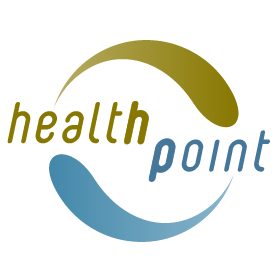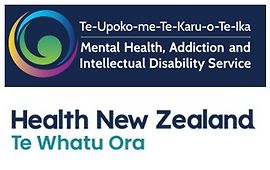Wellington > Mental Health & Addictions >
Team for Assertive Community Treatment (TACT) | MHAIDS
Mental Health Service, Addiction
Today
Description
The service is for people with persistent, long-term mental health and/or substance dependency problems, many of whom may be homeless and/or do not have any family support.
The service is for people from Wellington, Porirua and Kāpiti.
Fees and Charges Categorisation
Free
Fees and Charges Description
To find out if you are eligible for healthcare funding, please see the Mental Health, Addictions and Intellectual Disability Service website.
Hours
| Mon – Fri | 8:30 AM – 5:00 PM |
|---|
Public Holidays: Closed Wellington Anniversary (20 Jan), Waitangi Day (6 Feb), Good Friday (18 Apr), Easter Sunday (20 Apr), Easter Monday (21 Apr), ANZAC Day (25 Apr), King's Birthday (2 Jun), Matariki (20 Jun), Labour Day (27 Oct).
Christmas: Open 23 Dec — 24 Dec. Closed 25 Dec — 26 Dec. Open 27 Dec. Closed 28 Dec — 29 Dec. Open 30 Dec — 31 Dec. Closed 1 Jan — 2 Jan. Open 3 Jan. Closed 4 Jan — 5 Jan. Open 6 Jan — 10 Jan.
Languages Spoken
English
Programmes
A person’s living conditions sometimes mean it can be difficult for them to get the mental health and/or addictions related support they need. The service is for people with persistent, long-term mental health and/or substance dependency problems, many of whom may be homeless and/or do not have any family support. The service is for people from Wellington, Porirua and Kāpiti. We provide therapy and education to help people see the early signs of a possible relapse. We also help clients with practical issues, such as connecting them with help from Work and Income New Zealand (WINZ). Here are some examples of what we provide for our clients: psychologists use non-drug treatments like cognitive behavioural therapy (CBT), and eye movement desensitisation reprocessing (EMDR) to provide tools for people to better manage stress and mitigate their problems. mental health nurses help with medication, advocacy and assessment, and can do home visits. occupational therapist can engage you in everyday activities of interest, paid or volunteer work, outside interests and activities to get you on the road to feeling better. social worker provides talking therapy, support with families, psychosocial education, support with social services and connecting people with communities. psychiatrist can prescribe medication if it is the best option.
A person’s living conditions sometimes mean it can be difficult for them to get the mental health and/or addictions related support they need. The service is for people with persistent, long-term mental health and/or substance dependency problems, many of whom may be homeless and/or do not have any family support. The service is for people from Wellington, Porirua and Kāpiti. We provide therapy and education to help people see the early signs of a possible relapse. We also help clients with practical issues, such as connecting them with help from Work and Income New Zealand (WINZ). Here are some examples of what we provide for our clients: psychologists use non-drug treatments like cognitive behavioural therapy (CBT), and eye movement desensitisation reprocessing (EMDR) to provide tools for people to better manage stress and mitigate their problems. mental health nurses help with medication, advocacy and assessment, and can do home visits. occupational therapist can engage you in everyday activities of interest, paid or volunteer work, outside interests and activities to get you on the road to feeling better. social worker provides talking therapy, support with families, psychosocial education, support with social services and connecting people with communities. psychiatrist can prescribe medication if it is the best option.
- Programme Areas
Mental health, Addictions - drug & alcohol
- Programme Type
Community / social support (AOD), Coexisting problems – mental health & addictions, Non-acute specialist mental health community services
- Regions
Wellington
- Age Groups
Adult / Pakeke
- Referral Types
DHB clinical services
Referral Process
Referrals to TACT can only be made through an MHAIDS clinician or team.
If you or someone you know needs urgent help, call MHAIDS 24/7 on 0800 745 477 or find other options for support here.
Description
A person’s living conditions sometimes mean it can be difficult for them to get the mental health and/or addictions related support they need.
The service is for people with persistent, long-term mental health and/or substance dependency problems, many of whom may be homeless and/or do not have any family support. The service is for people from Wellington, Porirua and Kāpiti.
We provide therapy and education to help people see the early signs of a possible relapse. We also help clients with practical issues, such as connecting them with help from Work and Income New Zealand (WINZ).
Here are some examples of what we provide for our clients:
- psychologists use non-drug treatments like cognitive behavioural therapy (CBT), and eye movement desensitisation reprocessing (EMDR) to provide tools for people to better manage stress and mitigate their problems.
- mental health nurses help with medication, advocacy and assessment, and can do home visits.
- occupational therapist can engage you in everyday activities of interest, paid or volunteer work, outside interests and activities to get you on the road to feeling better.
- social worker provides talking therapy, support with families, psychosocial education, support with social services and connecting people with communities.
- psychiatrist can prescribe medication if it is the best option.
Additional Details
Face to face / Kanohi ki te Kanohi
Website
Contact Details
Wellington Hospital - Nga Puna Waiora
Wellington
-
Phone
(04) 806 2218
Website
Ground Floor
Administration Building
Wellington Hospital
31 Mein Street
Newtown
Wellington 6021
Street Address
Ground Floor
Administration Building
Wellington Hospital
31 Mein Street
Newtown
Wellington 6021
Postal Address
Wellington Hospital
Private Bag 7902
Wellington South
Was this page helpful?
This page was last updated at 10:26AM on April 24, 2024. This information is reviewed and edited by Team for Assertive Community Treatment (TACT) | MHAIDS.

